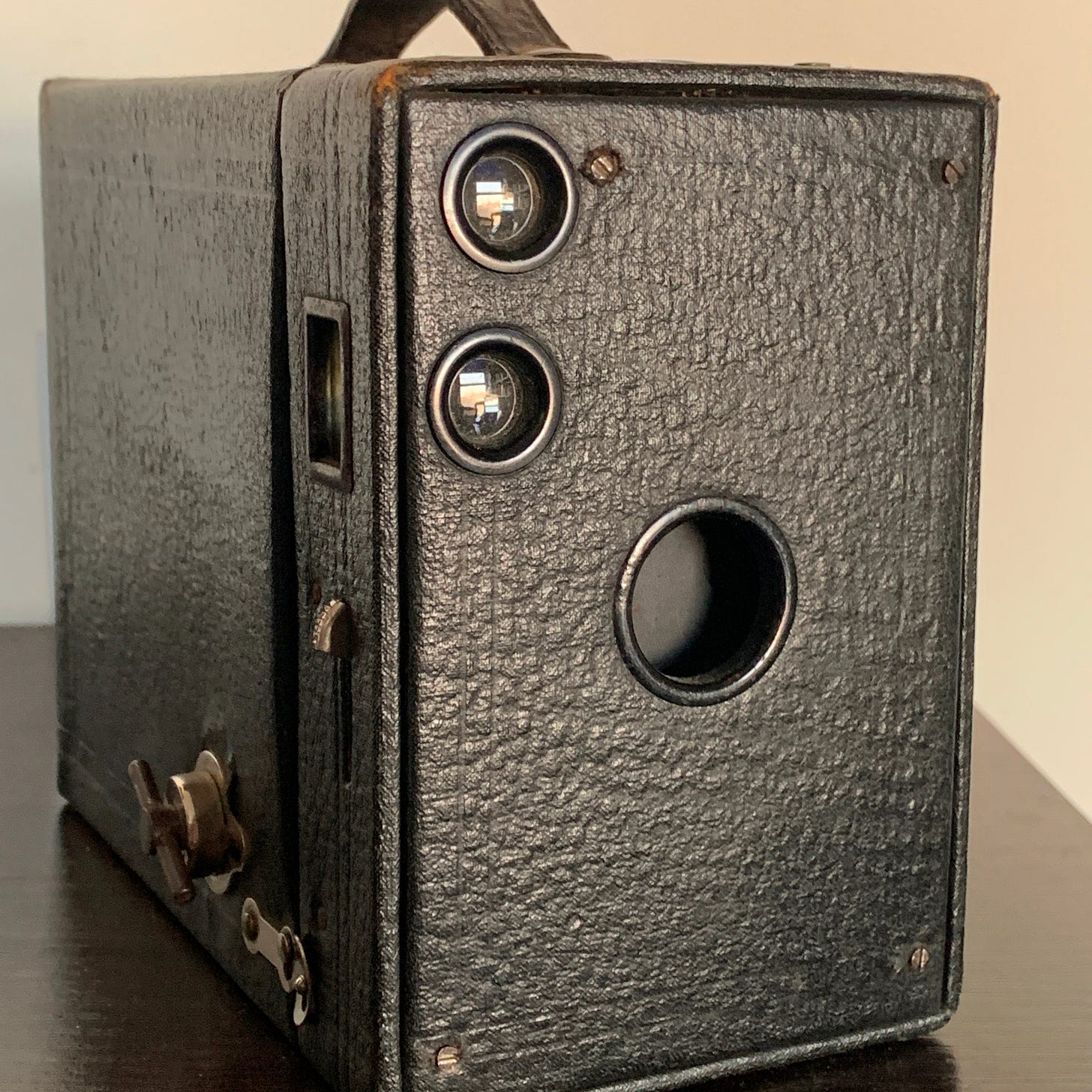On AI's Blank Face, We Project Our Psyche
Magical thinking comes naturally. But it doesn't inspire trust or self-confidence
For thousands of years, people have understood how their tools worked. Horse and plough, bow and arrow, boat, sail and rudder, were no mystery. You might need an expert to fix something, but you could tell what was wrong by looking at it.
That didn’t change with industrialization. Even I, a mechanical idiot, can understand this late 19th-century Kodak box camera that I bought years ago at a flea market. A clasp keeps its front and back sealed so that light can’t get into the box. A little t-knob turns a spindle which pulls film into place, at the back, so light can fall on it from the lens at the other end. A lever makes the shutter open for a fraction of a second, with a satisfying mechanical click.
Even as the digital era dawned, I grew up in this world of comprehension. When I looked under the hood of my old, decrepit first car (a Ford Falcon), I saw at once what kind of mechanical failure I was enduring…


